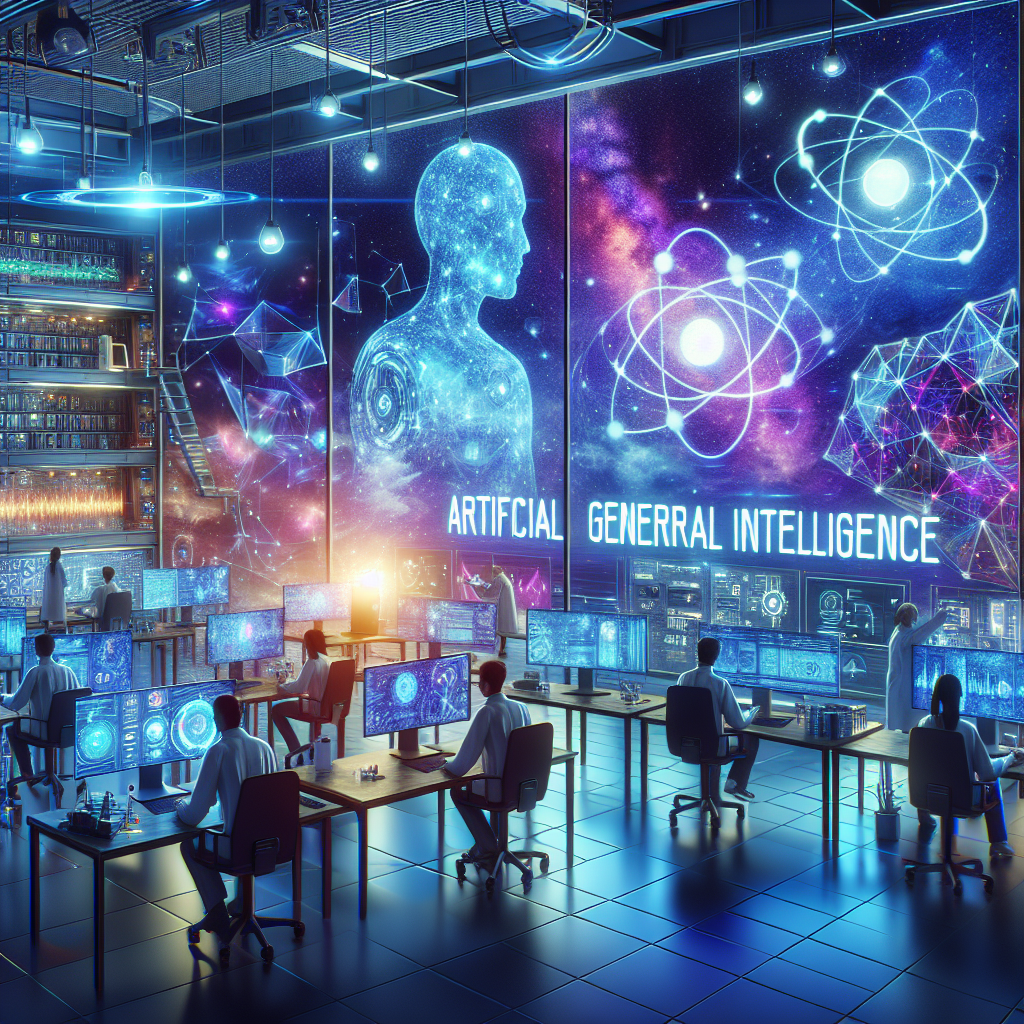Artificial General Intelligence (AGI) is the next frontier in artificial intelligence research. AGI refers to a type of artificial intelligence that can understand and learn any intellectual task that a human being can. It is the ultimate goal of AI research and represents a significant leap forward from the current state of AI technology.
AGI has the potential to revolutionize many aspects of our society, from healthcare and education to transportation and entertainment. However, achieving AGI is no easy task. It requires a deep understanding of human intelligence and cognition, as well as the ability to develop algorithms and systems that can replicate these processes in a machine.
In this article, we will explore the concept of AGI, its potential applications, and the challenges that researchers face in developing this technology. We will also discuss some common questions and misconceptions about AGI, in a FAQ section at the end of the article.
What is AGI?
AGI, or Artificial General Intelligence, is a type of artificial intelligence that is capable of performing any intellectual task that a human being can. This includes tasks such as learning, reasoning, problem-solving, and understanding natural language. AGI is often contrasted with narrow AI, which is designed to perform specific tasks or functions, such as image recognition or language translation.
AGI is sometimes referred to as “strong AI” or “full AI” because it represents a level of intelligence that is equivalent to or greater than that of a human being. AGI systems are able to adapt to new situations, learn from experience, and apply their knowledge to a wide range of tasks.
What are the potential applications of AGI?
The potential applications of AGI are vast and varied. AGI has the potential to revolutionize many industries and sectors, including healthcare, finance, transportation, and entertainment. Some of the potential applications of AGI include:
– Healthcare: AGI could be used to analyze medical data, diagnose diseases, and develop personalized treatment plans for patients. AGI systems could also assist doctors and nurses in performing medical procedures and surgeries.
– Finance: AGI could be used to analyze financial markets, predict stock prices, and make investment decisions. AGI systems could also be used to detect fraud and money laundering in the banking industry.
– Transportation: AGI could be used to develop autonomous vehicles that can navigate roads, interact with other vehicles, and make decisions in real-time. AGI systems could also be used to optimize traffic flow and reduce congestion in urban areas.
– Entertainment: AGI could be used to create immersive virtual reality experiences, develop interactive storytelling platforms, and generate realistic characters for video games and movies.
What are the challenges in developing AGI?
Developing AGI is a complex and challenging task that requires a deep understanding of human intelligence and cognition. Some of the key challenges in developing AGI include:
– Understanding the human brain: AGI researchers must have a thorough understanding of how the human brain works in order to replicate its functions in a machine. This requires knowledge of neuroscience, psychology, and cognitive science.
– Developing algorithms: AGI researchers must develop algorithms and systems that can mimic the cognitive processes of the human brain, such as learning, reasoning, and problem-solving. This requires expertise in machine learning, neural networks, and deep learning.
– Ensuring safety and ethics: AGI researchers must address the ethical and safety implications of developing AGI. This includes ensuring that AGI systems are transparent, accountable, and aligned with human values.
– Overcoming bias and discrimination: AGI researchers must address issues of bias and discrimination in AI systems, which can perpetuate social inequalities and injustices. This requires developing algorithms that are fair, unbiased, and inclusive.
FAQs about AGI
Q: Will AGI replace human workers?
A: AGI has the potential to automate many tasks and jobs that are currently performed by humans. However, it is unlikely that AGI will completely replace human workers. Instead, AGI is more likely to augment human capabilities and create new opportunities for collaboration and innovation.
Q: Will AGI have consciousness and emotions?
A: AGI is designed to mimic the cognitive processes of the human brain, but it is unlikely to have consciousness or emotions in the same way that humans do. AGI is a tool that can perform intellectual tasks, but it does not have subjective experiences or feelings.
Q: Will AGI be able to learn on its own?
A: AGI systems are designed to learn from experience and adapt to new situations. However, AGI systems still require human input and oversight to ensure that they are learning the right things and making the right decisions.
Q: How far are we from achieving AGI?
A: Achieving AGI is a long-term goal that will require significant advances in AI research and technology. While some researchers believe that AGI could be achieved within the next few decades, others believe that it is still many years away.
In conclusion, Artificial General Intelligence (AGI) represents the next frontier in artificial intelligence research. AGI has the potential to revolutionize many aspects of our society, from healthcare and finance to transportation and entertainment. However, achieving AGI is a complex and challenging task that requires a deep understanding of human intelligence and cognition. By addressing the key challenges and questions surrounding AGI, researchers can move closer to realizing the full potential of this groundbreaking technology.

